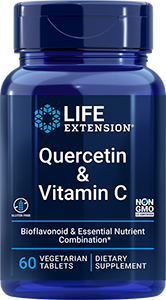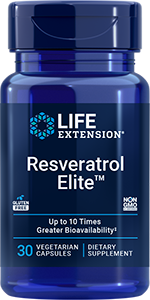
Newsletter
Newsletter
Fasting blood glucose, hemoglobin A1c, insulin resistance lower with taurine

Diabetics who took taurine, alone or in combination with other nutrients, had improvements in glucose control, according to a recent review and meta-analysis of clinical trials published in the July 30, 2022 issue of Food Chemistry: Molecular Sciences.1
Participants who received taurine had lower fasting blood glucose, hemoglobin A1c (HbA1c, a marker of average blood glucose levels during the previous two to three months) and insulin resistance compared with a placebo. Taurine’s antioxidant properties, its ability to support a healthy inflammatory response, and its protective effect in pancreatic cells are among the reasons why this amino acid may have a positive impact on diabetics’ blood sugar, according to the study’s authors, who also cited previous findings that showed taurine’s benefits to healthy individuals.
“To our knowledge, this is the first meta-analysis to comprehensively evaluate the effects of taurine…on various indicators in patients with diabetes,” Xiaomei Tao of Capital Medical University in Beijing and colleagues announced. “Taurine emerges as a new option for the management of patients with diabetes.”
Taurine is an amino acid that is made in the body and obtained in the diet. The meta-analysis included 5 controlled trials that evaluated the effects of taurine among 209 men and women with type 1 or type 2 diabetes. Taurine doses ranged from 500 milligrams (mg) daily to 1,000 mg three times per day.
Products
Apply What You've Learned: Taurine
- Taurine occurs in some foods and is made in the body; however, it may be hard to get an optimal amount from diet alone.2 Most people only consume approximately 400 mg taurine per day from a higher-taurine source such as meat, while the body needs 3,000 mg.3 Taurine from non-food sources may help bridge this gap.
- Consuming additional taurine may help protect against brain degeneration in individuals with diabetes.4 Animal research has revealed that taurine stimulates brain cell formation in the hippocampus, which is an area of the brain involved in memory and learning.5
- Taurine is needed for healthy heart function.6 It also helps support the skeletal muscles of the body. This makes consuming an optimal level of taurine particularly important as we age.7
References
- Tao X et al. Food Chem (Oxf). 2022 Mar 21;4:100106.
- Ames BN. Proc Natl Acad Sci U S A. 2018 Oct 23;115(43):10836-10844.
- Bkaily G et al. Can J Physiol Pharmacol. 2020 Feb;98(2):67-73.
- Rafiee Z et al. Nutrients. 2022 Mar 18;14(6):1292.
- Gebara E et al. Stem Cell Res. 2015 May;14(3):369-79.
- Schaffer S et al. Amino Acids. 2000;19(3-4):527-46.
- Scicchitano BM et al. Curr Protein Pept Sci. 2018;19(7):673-680.
Featured Life Extension Magazine® Article
Fisetin and Brain Aging, by Richard Reynolds
Fisetin, which occurs in small amounts in fruit and vegetables, is a flavonoid that supports brain health. Preclinical research findings suggest that supplementing with fisetin may be of benefit during brain aging and in cognitive decline, Alzheimer disease, stroke, traumatic brain injury and more. In a clinical trial, fisetin was shown to prolong the period during which TPA could be successfully administered for the treatment of stroke, thereby improving outcomes among those who experienced delayed treatment.
Combining fisetin with fiber from the fenugreek plant improves its bioavailability. This leads to approximately 25 times more fisetin being absorbed than would otherwise occur.
Read Full Article
What's Hot
Health Concern
Resveratrol associated with improved glucose regulation in diabetics
The June 2022 issue of Complementary Therapies in Medicine reported findings from a randomized trial that uncovered positive effects for supplementing with resveratrol in the regulation of glucose and the maintenance of healthy levels of inflammation and oxidative stress in type 2 diabetics.

Diabetes and Glucose Control
This protocol explains the difference between type 1 and type 2 diabetes, and how elevated blood sugar, even within the normal range, can damage tissues throughout the body.
Related Life Extension Magazine® Articles

Taurine's Role in Resisting Infections
A study finds that taurine metabolites feed beneficial gut microbiota to potentially combat dangerous intestinal bacteria.

Vitamin K Promotes Healthy Blood Sugar Metabolism
A recent study found that vitamin K can reduce the risk of developing type II diabetes by 51% and inhibit metabolic syndrome.
Life Extension Magazine® Issue Now Online
A remarkable number of healthy-longevity findings have been published over the past 18 months.




